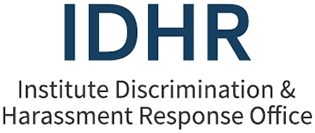Title IX Sexual Harassment
This definition of “Title IX Sexual Harassment” is published in the MIT Policies and Procedures, Section 9.5, and the MIT Mind and Hand Book, Section II.
Although MIT broadly prohibits sexual harassment and other forms of sexual misconduct, federal Title IX regulations require MIT to follow specific processes when the Institute has actual knowledge of a report of certain categories of sexual misconduct, referred to as “Title IX Sexual Harassment.”
Title IX Sexual Harassment means: Conduct on the basis of sex that satisfies one or more of the following
- An employee of MIT conditioning the provision of an aid, benefit, or service of MIT on an individual’s participation in unwelcome sexual conduct;
- Unwelcome conduct determined by a reasonable person to be so severe, pervasive, and objectively offensive that it effectively denies a person equal access to MIT’s education program or activity; or
- “Sexual assault,” “dating violence,” “domestic violence,” or “stalking,” as defined by federal law and set out on the Institute Discrimination and Harassment Response (IDHR) website.
MIT must follow the specific processes cited below when it receives a formal complaint of Title IX Sexual Harassment and where all of the following apply:
- At the time of filing a formal complaint, the Complainant was/is participating in or attempting to participate in the education program or activity at MIT;
- The alleged conduct occurred in an education program or activity controlled by MIT; and
- The alleged conduct occurred against a person in the United States.
Formal Complaints of Title IX Sexual Harassment are investigated in accordance with the IDHR Investigation Guide and hearings are held in accordance with the Hearing Procedures for complaints against a faculty member, staff member, or postdoctoral scholar (fellow or associate) and in the Title IX Sexual Harassment Hearing Procedures in the Committee on Discipline Rules for complaints against students.
Formal Complaints of sexual harassment and sexual misconduct that do not meet the definition of Title IX Sexual Harassment are addressed under the complaint resolution process described in Section 9.8 for complaints against a faculty member, staff member, or postdoctoral scholar (fellow or associate) and in the Sexual Misconduct Hearing Procedures (Non-Title IX Sexual Harassment) in the Committee on Discipline Rules for complaints against students.


